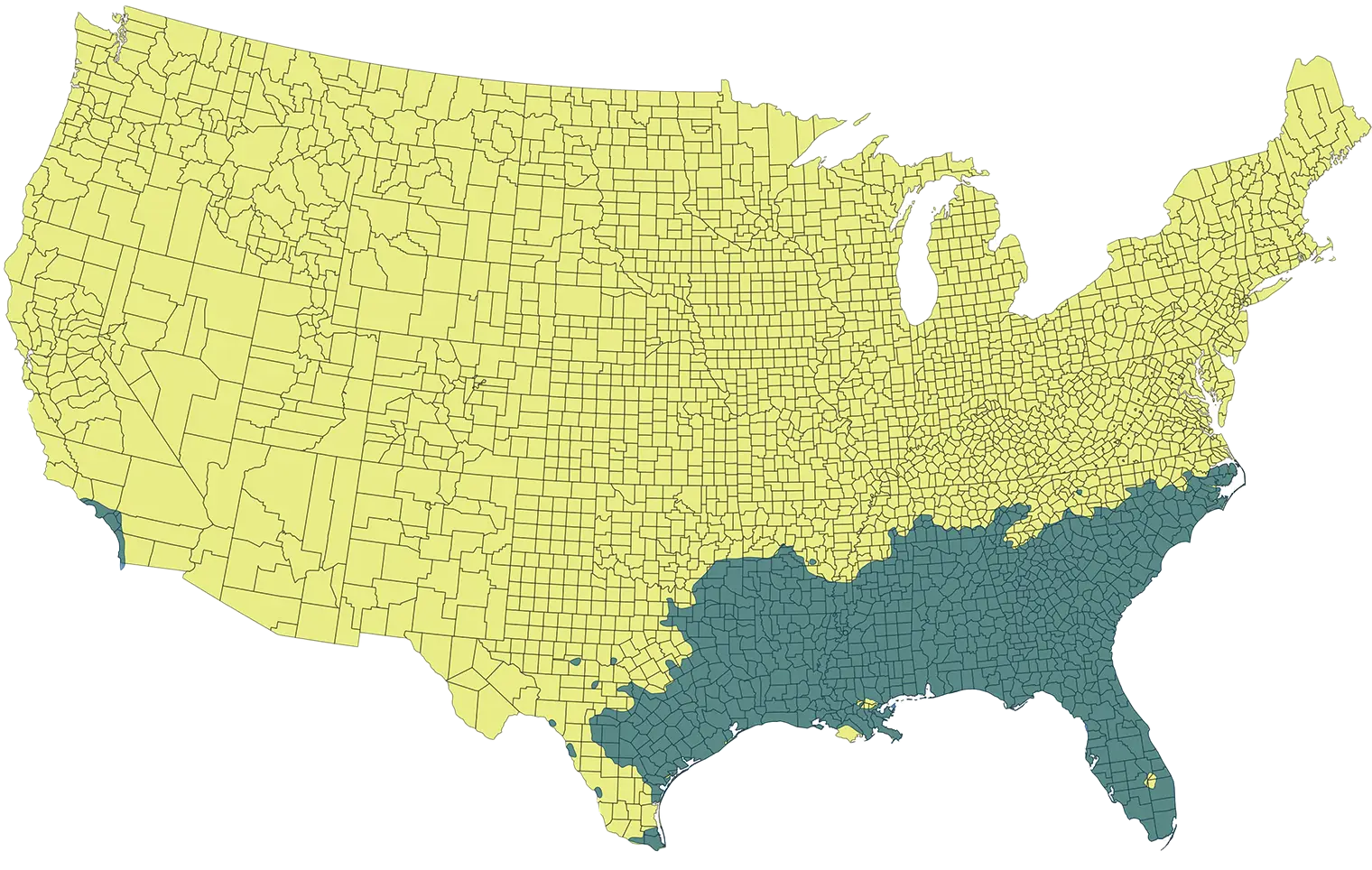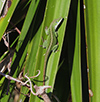Green Anole
Anolis carolinensis
Common Name: |
Green Anole |
Scientific Name: |
Anolis carolinensis |
Etymology: |
|
Genus: |
anoli (West Indian) a lizard; -ensis (Latin) suffix meaning belonging to |
Species: |
carolinensis means Carolina |
Average Length: |
5 - 9 in. (12.5 - 23.1 cm) |
Virginia Record Length: |
Unknown |
Record length: |
233 mm (9.2 inches) |
Description: A small to moderate-sized lizard with a long wedge-shaped head reaching a maximum snout-vent length (SVL) of 81.5 mm (3.2 inches) and a total body length of 233 mm (9.2 inches). In Virginia the maximum lengths have not been documented. Tail length accounts for 60 to 67% of total body length. Green Anoles can change color in response to environmental temperatures and social interactions. These colors can range from bright green to dark brown or dull grayish brown.
Male Green Anoles differ from females by having an extensible pinkish dewlap or throat fan and two or more enlarged post-anal scales at the base of the tail. Males have a slightly elongated narrow head and well-developed frontal ridges. Frontal ridges are especially conspicuous in large males. Males over 60 mm in SVL usually have relatively longer tails than smaller specimens of both sexes. Females have a light middorsal stripe running the length of the spine. Hatchlings and juveniles typically have relatively wider heads and shorter tails than older individuals, and frontal ridges are generally inconspicuous in juveniles.
Scutellation: Scales are small and granular; prominent superciliary ridge on each side of head from upper orbit to nostril and 2 less prominent frontal ridges; supralabials 9 to 13 (counted between rostral and posterior margin of orbit); infralabials 9 to 15 (counted between mental and posterior margin of orbit).
References for Life History
Photos:
*Click on a thumbnail for a larger version.
Verified County/City Occurrence in Virginia
CITIES
Franklin
Virginia Beach
Verified in 0 counties and 2 cities.
U.S. Range

US range map based on work done by The Center for North American Herpetology (cnah.org) and Travis W. Taggart.














